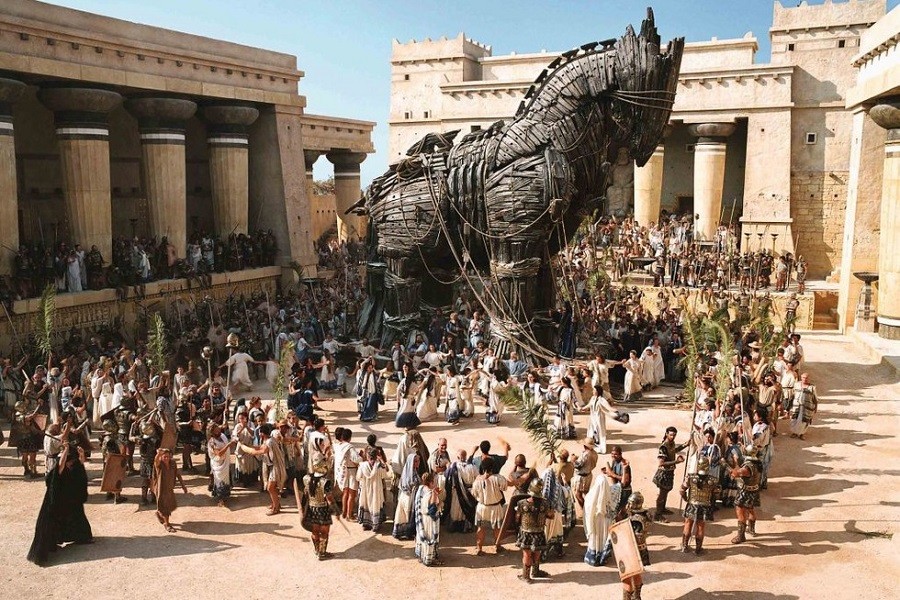One of the most important and the earliest recorded event in Greek mythology is the Trojan War. There is, perhaps, no other mythological event that could stir the popular imagination more. The Trojan War provided a great literary source, exemplified by the immortal works of Homer.
Ancient Greek writers put the timeline of the Trojan War somewhere between 12 and 13 centuries BCE.
In the traditional accounts, the Greek King Agamemnon led an expedition to bring back Helen, the wife of Menelaus of Sparta. Helen had run off with Paris, a prince of Troy.
The ensuing battle lasted for about 10 years, with a stellar cast of Greek and Trojan Heroes as well as Olympian Gods. The war claimed the lives of many great heroes, including Hector, probably the best Trojan general, as well as Achilles, one of the greatest Greek heroes. The war ended with the destruction of the city.
The story of the great war has been told for more than 3000 years now. But why?
Because the Trojan war is not simply excellent storytelling, it also tells us a lot about how ancient Greeks actually lived and viewed the world.
From a literary perspective, the story is complex, and none of the characters is purely good or evil. While ostensibly showing a Greek victory, the ending still leaves a lot for the reader to ponder about the actual result.
Many of the earliest historians, like Herodotus and Eratosthenes, believed the Trojan war was real. They placed the war in 1200 BCE, when the Mycenaean civilization, the predecessor of the Hellenic Greeks, was collapsing.
However, for a long-time, archaeologists considered the story complete fiction. This changed in 1873 with the excavation of an amateur German archaeologist, Heinrich Schliemann.
There is an ancient city, Hisarlik, on Türkiye’s west coast. It’s long been suspected that this could be the location of Troy.
Schliemann discovered many artefacts here that he claimed belonged to the mythological king of Troy Priam during the war. Schliemann initially argued that the artefacts dated back to the late bronze age to align the timeline with the Trojan war. But they were later proved to be older by more than a century. However, following subsequent excavation, a good number of archaeologists came to believe that this was the location of Troy.
The findings showed the city was devastated by an earthquake in 1300 BCE, after which it suffered an attack. Evidence of fighting was identified. Surprisingly, the city appeared to be rebuilt following destruction, but not by the Greeks. Archaeologists also found artefacts that pointed to a battle for the city in 1190. By that time, the Mycenaean civilization had collapsed, and it is inconceivable to think of a Mycenean king leading any kind of expedition then.
What is interesting is the archaeologists say there were actually more than 10 cities in the location of Troy, built on top of the previous one. Based on the findings of Gert Jan van Wijngaarden, a researcher at the University of Amsterdam, Troy was probably first built in 2250 BCE, and at the time of the Trojan war, it was protected by a massive wall.
There are other records too. In the capital city of the Hittite empire, Hattusa, there were records of Troy. The Hittites ruled from 1750 B.C. to 1200 B.C. and included Troy as their vassal state in official documents.
The same documents also mentioned that a war broke out between the Hittites and Greeks over Troy, which they called Wilusa. This could have served as the source material for Homer’s epics.
Whatever the truth, archaeologists and historians all agree now that there is at least some truth in Trojan War.
According to German archaeologist Manfred Korfmann, what Homer had described in Iliad might contain a bit of truth, and it is up to us to discern it.


